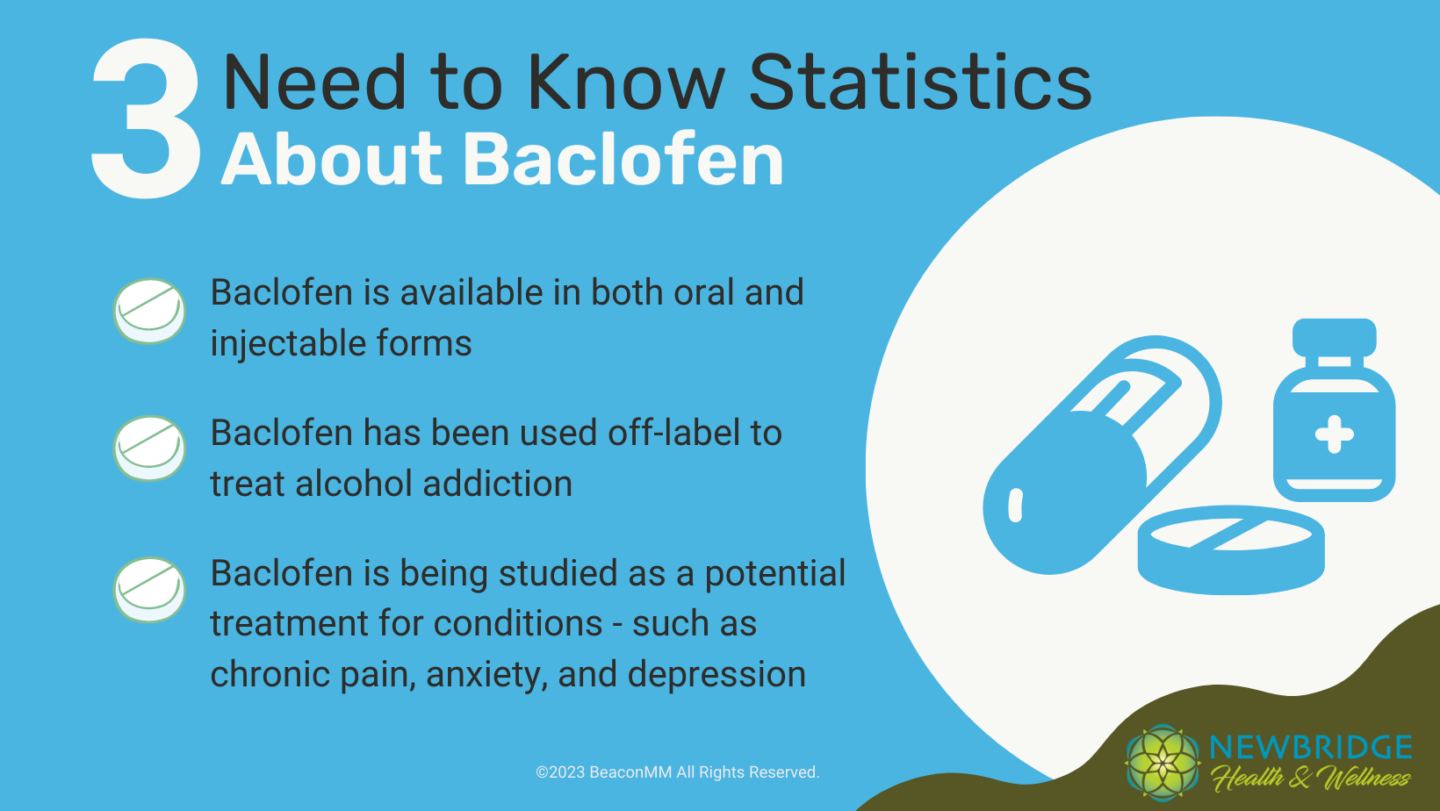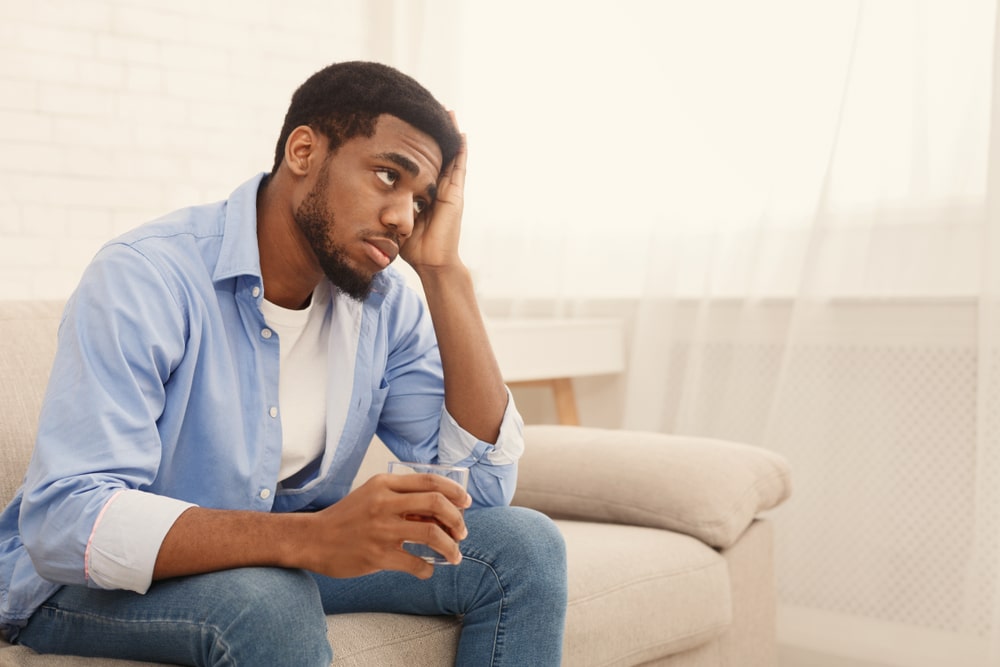Alcoholism is a serious disease that affects millions of people worldwide. In the United States alone, the CDC reports that nearly 140,000 people die of alcohol-related causes each year. With these statistics in mind, it is safe to say that alcohol-related illnesses can be deadly – especially in cases where lifestyles are not changed in accordance with healthier habits.
While some of us may only drink socially from time to time, it is no secret that many Americans suffer from overuse of alcohohol. For some, they drink so they can sleep at night. For others, they use alcohol to “unwind”, and others use it to “take the edge off”.
There are many therapies and medications in use today by the medical community to assist in alcohol addiction and overuse. However, one medication that is widely unknown and has shown promise in recent years abroad (Australia and Europe), is Baclofen.
In the following, we’ll break down the science behind how Baclofen works, and how this type of treatment may be helpful for reducing the desire to drink if you suffer from alcoholism.
Are you suffering from alcoholism and want to explore how Baclofen can help? Contact Newbridge Health & Wellness today and schedule a consultation.
What is Baclofen?

According to Elizabeth Kirt, MSN, APRN, FNP-C, of Newbridge Health & Wellness and author of The Patient’s Guide to Baclofen for Alcohol Reduction: An Effective Treatment That Allows You to Regain Control of Your Drinking Without Abstinence, “Baclofen was created in the 1960s and FDA-approved in 1971. One of the things that I like about this medication is that it has been on the market for over 50 years, it has no long-term side effects and short term side effects quickly go away once you stop the medication. Basically, it has a low side-effect profile and it is considered a fairly safe drug”.
Essentially, Baclofen is a medication that acts as a muscle relaxant and antispasmodic agent. The medication is commonly used to treat muscle spasticity, which is a condition characterized by involuntary muscle contractions that can lead to stiffness, pain, and difficulty with movement.
As a prescribed medication, Baclofen is often used to treat conditions such as multiple sclerosis and spinal cord injuries. Baclofen is readily available in tablet form and is typically taken orally. However, it’s important to note that as with any medication, it can have side effects and should only be taken under the supervision of a healthcare professional.
A few statistics about Baclofen include:
- Baclofen is available in both oral and injectable forms (only oral forms are used for alcohol reduction)
- According to data from the National Health and Nutrition Examination Survey (NHANES) from 2013-2016, approximately 1.1% of adults aged 40 years or older reported using baclofen within the past 30 days
- Baclofen can cause side effects, including drowsiness, dizziness, weakness, and nausea
- Baclofen has been used off-label to treat alcohol addiction, and there is ongoing research on the topic
- Baclofen is being studied as a potential treatment for conditions, such as chronic pain, anxiety, and depression
How Does Baclofen Help With Alcohol Cravings?
Alcohol cravings are a major obstacle for people trying to overcome alcohol addiction. Anyone who has ever experienced these cravings understands that they can be intense and persistent, often leading to relapse. When used off-label for alcohol reduction, Baclofen is thought to work by reducing the craving for alcohol by acting on the GABA-B receptors in the brain.
GABA-B receptors are responsible for regulating the release of dopamine, a neurotransmitter that plays a key role in the reward system of the brain. When alcohol is consumed, it stimulates the release of dopamine, which creates a pleasurable sensation. Elizabeth Kirt, MSN, APRN, FNP-C states, “There are three FDA-approved medications in the United States for the reduction of alcohol use. One of these drugs is called naltrexone. Naltrexone works by blocking the pleasure response one experiences when they drink alcohol. Baclofen works much differently as it helps to take away the craving and the desire to drink.”
Baclofen and Withdrawal Symptoms
Alcohol withdrawal can be a painful and a potentially life-threatening experience. Symptoms include tremors, seizures, hallucinations, and delirium tremens. However, clinically, Baclofen has been shown to reduce the severity of alcohol withdrawal symptoms in some patients that have mild symptoms. Baclofen should not be used for the treatment of major alcohol withdrawal symptoms.
Kirt also notes, “The timing of taking Baclofen is really important because you’ll typically take it a few hours before you start drinking. For example, if you normally begin drinking around five o’clock, you’d take a prescribed dose of Baclofen approximately two hours before your first drink. As a result, you may not desire to drink once you take the medication, or if you do drink, you will often drink less. The first sign that it is working is often a shorter drinking window. For instance, if you usually drink from 5:00 PM to 10:00 PM, you may find yourself starting later and finishing earlier, such as starting at 7:00 PM and ending at 9:00 PM” she explains.
Baclofen and Relapse Prevention
Relapse prevention is a key component of alcohol addiction treatment. Baclofen has been shown to be effective in reducing the risk of relapse in people who have quit drinking
Kirt explains, “Baclofen is an anxiolytic, so it can dampen an anxiety component that some people report fuels their alcohol consumption. For example, some people come home at night and drink to unwind, or they may drink before they leave for work because their anxiety is so high. Baclofen can be very helpful for these scenarios simply because it curbs the anxiety”
Side Effects of Baclofen
As with any medication, there are potential side effects associated with baclofen. Some of the most common side effects include drowsiness, dizziness, and nausea. These side effects are typically mild and go away as the body adjusts to the medication and due to a slow titration schedule. The threat of more serious side effects, such as seizures or hallucinations, are rare, but can occur.
Elizabeth Kirt, APRN, FNP-C explains, “When we are using Baclofen for alcohol, the most common side effects are nausea, headache, dizziness, and fatigue. However, usually what I see when I have a patient with side effects such as headache and dizziness is that these are usually related to dehydration. As long as a patient is drinking at least three to four liters of water a day, they usually don’t have these side effects”.
From Craving to Control
From a functional medicine standpoint, and though Baclofen is a medication that has shown promise in treating alcohol addiction, other therapy or counseling may also still be needed in order to battle alcohol addiction. Baclofen works by reducing the craving for alcohol, possibly minimizing the severity of mild withdrawal symptoms, and possibly reducing the risk of relapse. If you are in any type of intervention program or counseling, the combination of Baclofen and counseling can be extremely helpful.
Further, according to Kirt, “When I prescribe Baclofen, I have the patient continue drinking just as they normally would. The baclofen dose is very low in the beginning, such as a half tablet, then every few days I’ll increase the dosage. So – in theory – as your medication dosage goes up, your desire to drink will correspondingly go down, creating an inverse relationship that prevents harmful effects of taking baclofen with alcohol.”
While Baclofen offers a promising solution to alcohol addiction and is generally well-tolerated as an effective tool in the treatment of alcoholism, if you or someone you know is struggling with alcohol addiction be sure to talk to a healthcare provider about whether baclofen may or may not be a good option.
Are you suffering from alcohol addiction and want to explore how Baclofen can help you reduce your desire to use alcohol? Reach out to Newbridge Health & Wellness today and schedule a consultation.


